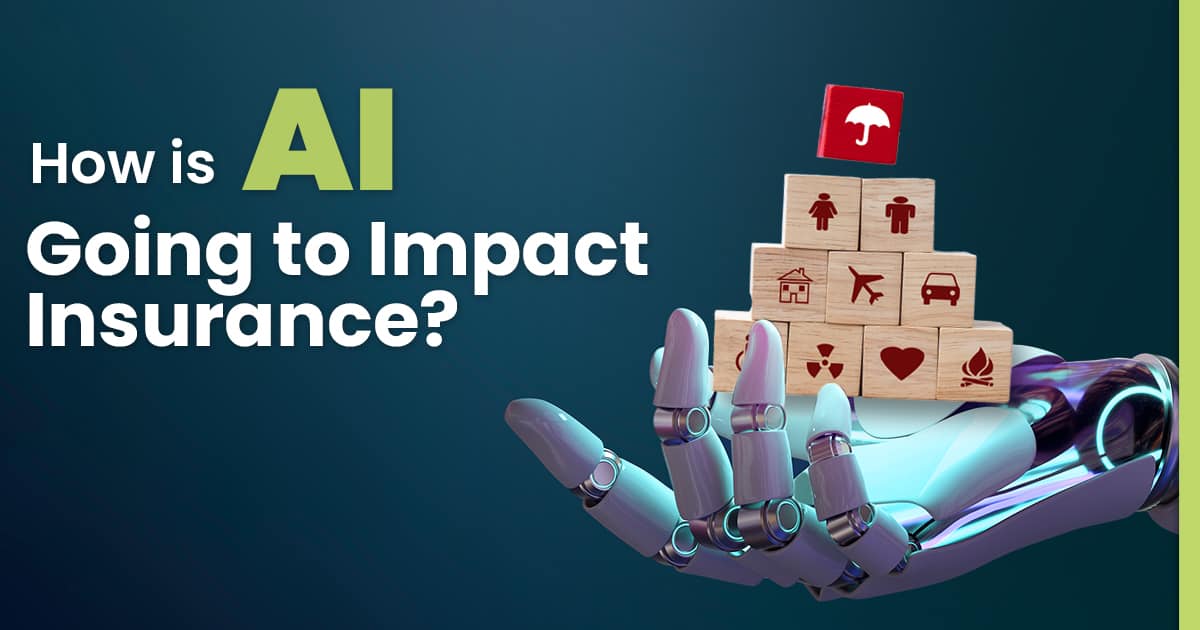
How is AI Going to Impact Insurance?
January 21, 2023
Share:
AI. Artificial intelligence. The development of ‘thinking’ computer systems, machine learning, knowledge engineering – call it what you will, but AI is virtually technology or software that utilizes the ability to “self-learn” and perform basic tasks. Many businesses are currently using it to man phone lines and answer basic questions, assist in quoting processes, and occupy chatboxes. But the future of AI is so much more, and we’re already starting to see its advances impacting different aspects of businesses, our personal lives, and even our education systems.
So, what about the insurance industry?
Artificial intelligence has already impacted the insurance industry. It’s impacting the ways that we detect fraud, it is helping insurers to assess risk, and it is significantly reducing human error in the insurance application process. In this blog post by Excalibur, we’ll break down how AI is radically impacting the insurance world in three of the biggest ways.
AI is impacting insurance in:
How We Detect Fraud.
Fraud is one of the biggest issues for insurance companies globally, and it’s just as much an issue for policyholders since insurance fraud can impact your premiums. AI can serve as a sort of “watchdog” for fraudulent claims. Basically, machine learning can assist in detecting suspected fraud, and existing cognitive machine learning algorithms have already achieved a 75% success rate in detecting fraudulent insurance claims. Machine learning algorithms can also train themselves over time and become progressively more effective at resolving and even enhancing fraud protection.
How We Assess Risk.
Typically, underwriters will depend on applicant-provided info to accurately determine a clients’ insurance risk. The issue with that, of course, is that there are applicants who are dishonest and who make mistakes, ultimately rendering these risk assessments as inaccurate.
Enter machine learning. Machine learning compiles a serious of data that allows insurers to sift through more abstract information sources, including things like social media, Yelp reviews, and SEC filings to better assess the potential risk of a policyholder.
What’s the benefit of better risk assessment? Well, it means that premiums can be gauged more appropriately – which benefits both providers and insurance policyholders, as you won’t be paying for more than you should, and providers can give higher premiums to higher-risk policyholders. This allows the insurance industry to offer more customized plans, rather than the standard liability policy for every customer. Consuming data automatically expedites the process, allowing for better customization, and ensuring that consumers pay for the exact coverage that meets their needs. With AI contributing to risk assessment processes, everyone wins.
How We Reduce Human Error.
People get tired and make mistakes. Machines don’t get tired.
Machine learning algorithms gives consumers consistent advice, where human employees – even those with the best training and the best skill – can mess up sometimes. The distribution chain that the insurance industry uses can often be complex, incorporating a lot of middle men, which sometimes leads to human error (given the great deal of manual work involved.) Incorporating AI can reduce the issue of human error and significantly improve customer experience.
Is AI a Benefit for the Insurance Industry?
The insurance industry benefits from AI all-around. First of all, Individual machine learning algorithms that perform basic tasks are relatively inexpensive. Plus, they can do away with repetitive issues that would otherwise significantly consume a human employee’s time when they could be better off working on higher-thinking tasks. With human error reduced, the application process is also streamlined. Claims get resolved faster, AI can operate phone lines and answer basic queries, and so much more.
From the consumer or policyholder point of view, the benefit of the insurance industry’s adoption of AI technology may not be as apparent. However, there are numerous benefits for consumers. AI-assisted risk management can ensure that customers are getting better, more customized insurance plans, and the application process itself has less human error. With more customer service options, since many can be manned by AI tech instead (and therefore free up human employees to do more) the claims approval process will be streamlined, and customers can get their settlements quicker and easier.
A Brighter Future with Insurance AI.
From what it seems, both the insurance industry and its consumers will benefit from incorporating AI. This is true of policyholders purchasing personal lines insurance and true of small business owners. While we are certainly still in the very early stages, where artificial intelligence software is only capable of assuming menial, repetitive tasks, it’s already apparent how much time, energy, and efficiency we’ll gain from incorporating AI. Maybe down the line, AI software and technology will learn to manage the more complex claims process, freeing up human employees for higher-order decision-making where it’s needed. There’s no guarantee of what the future is going to hold, but it’s looking like incorporating AI for insurance companies is imperative for businesses to stay competitive in the industry.






